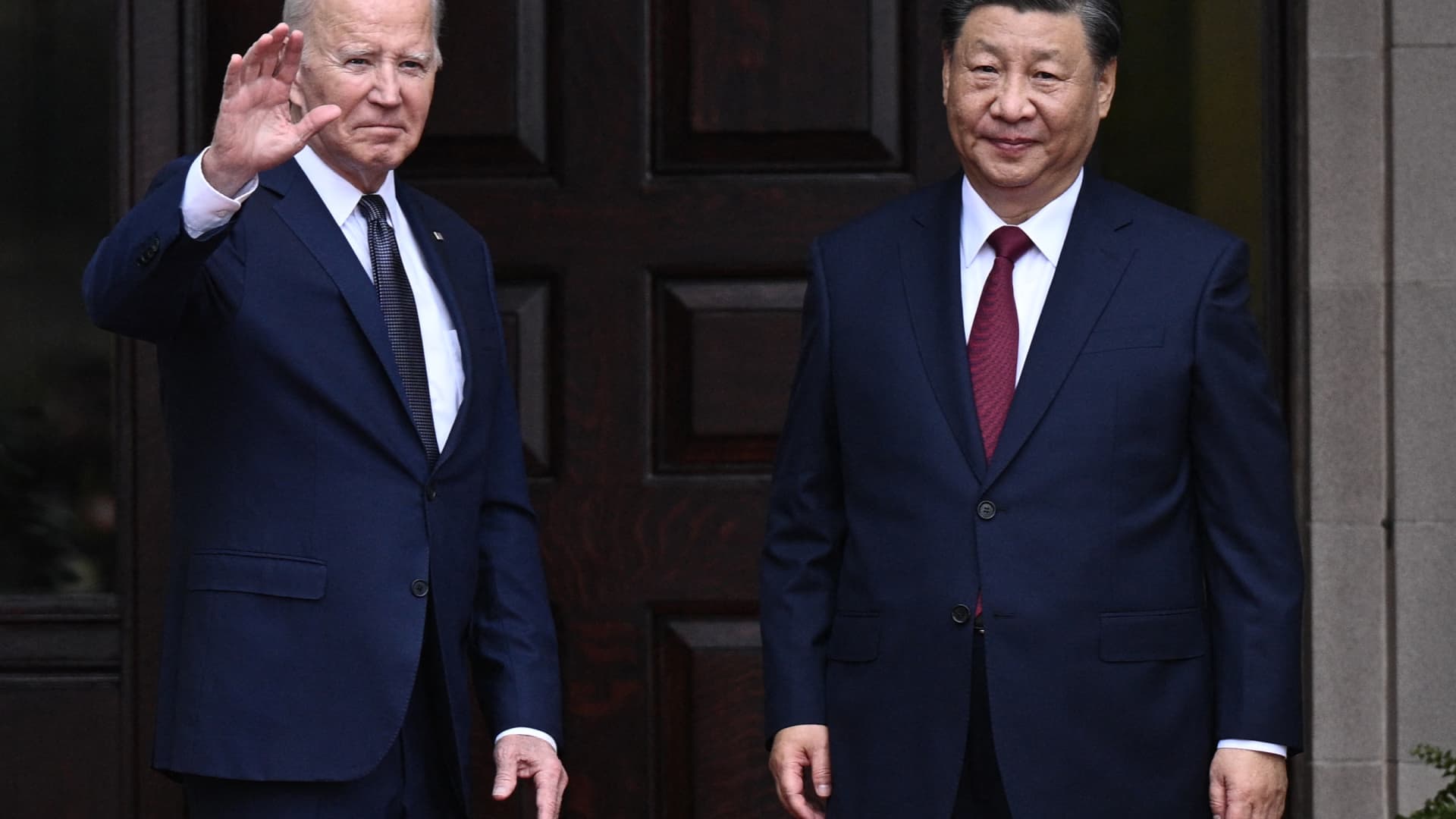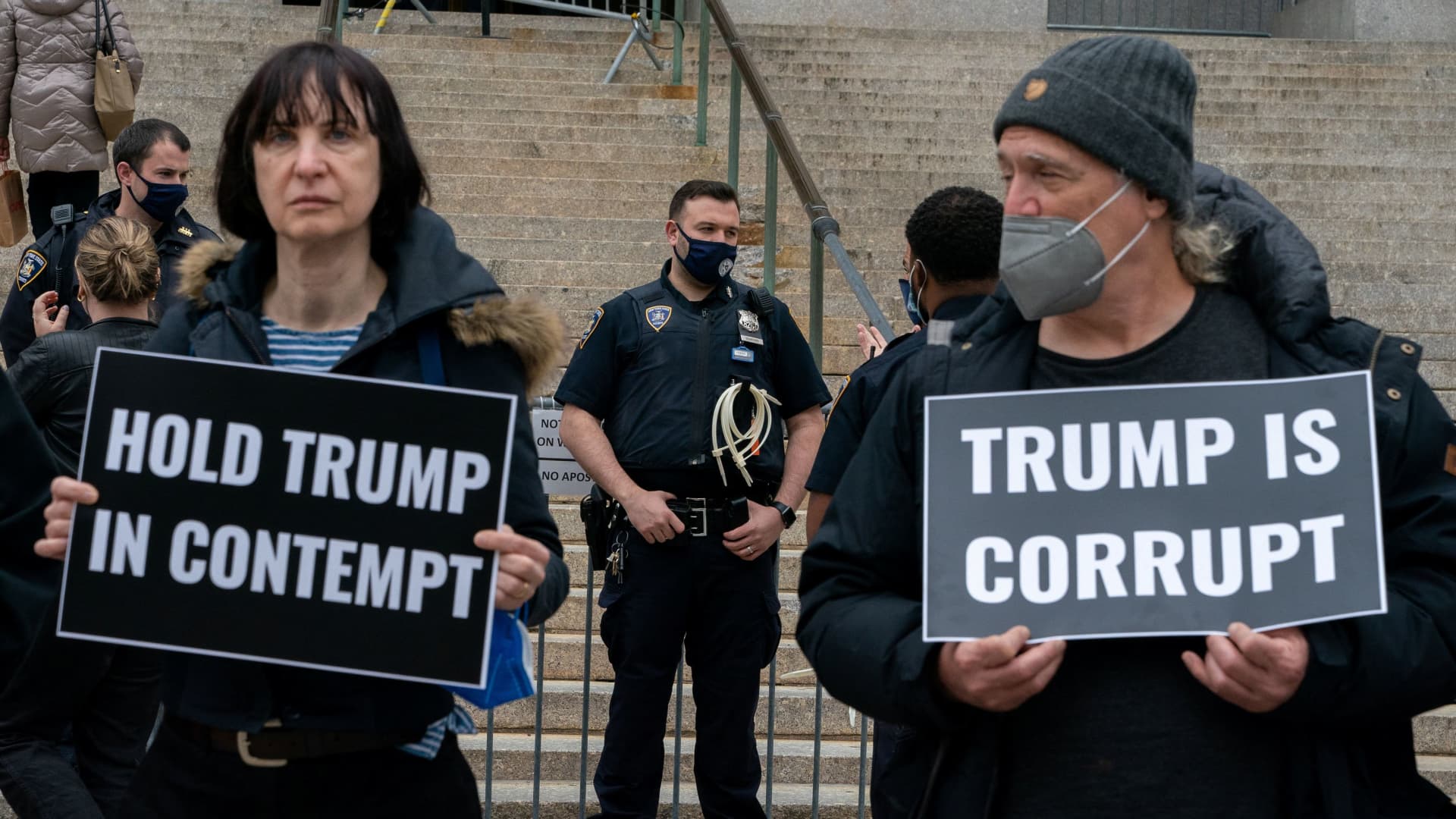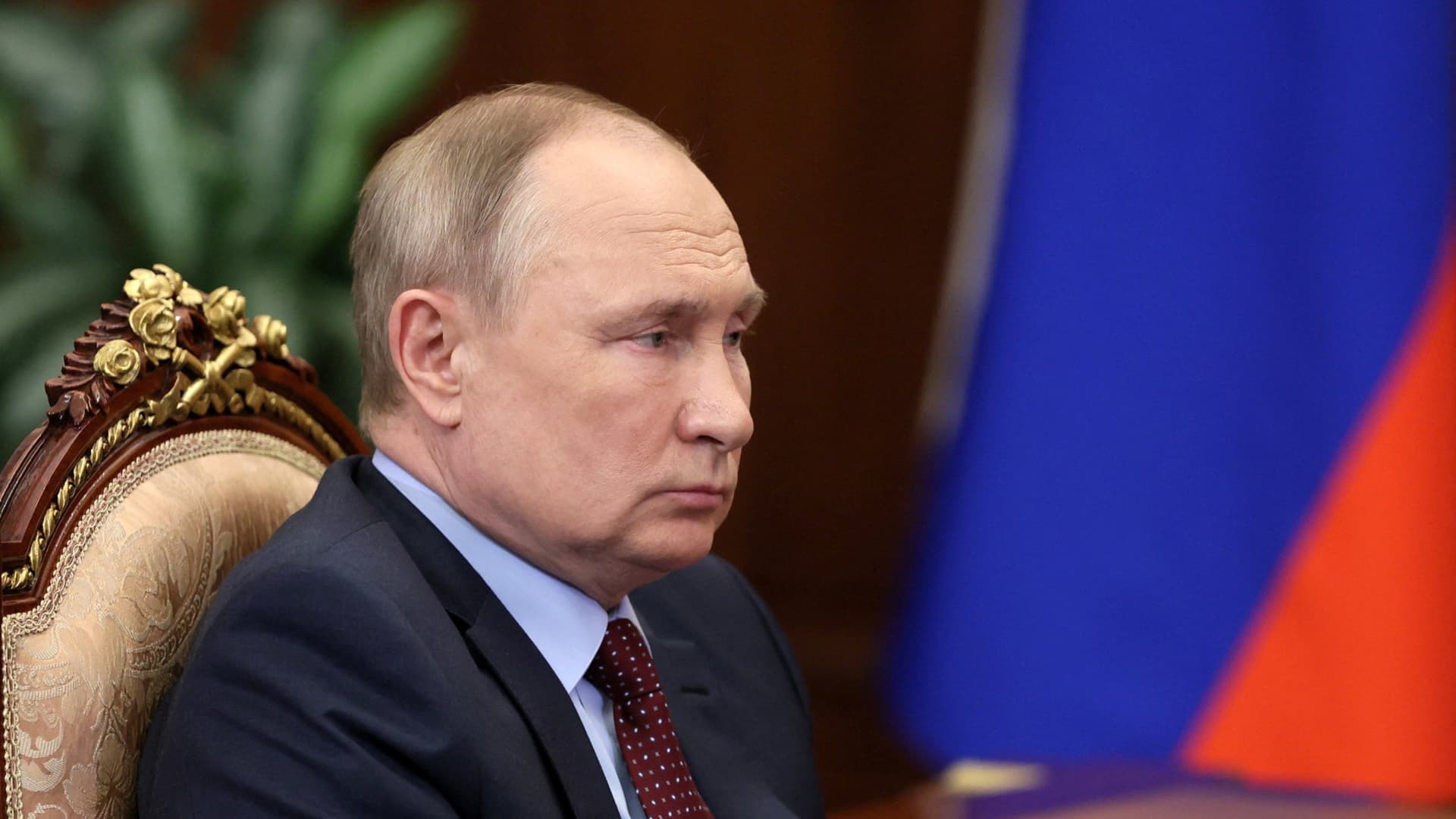China slams U.S. probe into its shipbuilding industry, says move is a 'mistake on top of a mistake'
China on Wednesday said it "firmly opposes" the U.S. investigation into its maritime, logistics and shipbuilding industries.

U.S. President Joe Biden and Chinese President Xi Jinping before a meeting during the Asia-Pacific Economic Cooperation leaders' week in Woodside, California, Nov. 15, 2023.
Brendan Smialowski | Afp | Getty Images
China said it "firmly opposes" the U.S. investigation into its maritime, logistics and shipbuilding industries, calling the move a "mistake on top of a mistake."
In an official statement late Wednesday, China's ministry of commerce said the U.S. provides hundreds of billions of dollars in "discriminatory" subsidies to its domestic industries, "yet accuses China of adopting so-called 'non-market practices.'"
"In fact, the development of China's industries is the result of companies' technological innovation and active participation in market competition," the Chinese ministry said.
On Wednesday, the Office of the U.S. Trade Representative initiated a probe into China's maritime, logistics and shipbuilding industries, alleging that Beijing used "unfair, non-market policies and practices" to dominate these sectors. Under the Trade Act of 1974, Section 301 seeks to address unfair foreign government practices impacting U.S. commerce.
"By launching a new Section 301 investigation, the U.S. is making a mistake on top of a mistake," the China's commerce ministry said.
Beijing called on the U.S. to "respect multilateral rules" and vowed to "take all necessary steps to resolutely defend its rights and interests."

The investigation comes as five national labor unions launched a petition on March 12 requesting the U.S. to probe the policies and practices of China's maritime, logistics, and shipbuilding sectors.
U.S. Trade Representative Ambassador Katherine Tai has pledged to launch a "full and thorough investigation into the unions' concerns."
"The allegations reflect what we have already seen across other sectors, where [China] utilizes a wide range of non-market policies and practices to undermine fair competition and dominate the market, both in China and globally," she said, according to the USTR statement.
President Joe Biden has also called on the USTR to triple tariffs on Chinese steel and aluminum imports , in a bid to protect American industries.
"Chinese policies and subsidies for their domestic steel and aluminum industries means high-quality U.S. products are undercut by artificially low-priced Chinese alternatives produced with higher emissions," the White House said in a statement.
In an address to union workers in Pittsburgh on Wednesday, Biden accused China of "cheating" in its steel trade practices.
"They're not competing. They're cheating," he said, adding that "we've seen the damage here in America."
"The bottom line is that I want fair competition with China, not conflict."
Deborah Elms, head of trade policy at the Hinrich Foundation, said the Section 301 investigationcould be more significant than Biden's call for tariff hikes on Chinese steel and aluminum imports.
The total amount of Chinese steel into the U.S. market is less than 1%, Elms told CNBC's "Capital Connection" on Thursday.
She said the launch of a Section 301 investigation on shipbuilding "is becoming more of an issue potentially."
"Now, that could be much more significant because it sets up the stakes for further retaliation by the U.S. against China, and then potentially by China against the U.S.," said Elms.
"As we head into a very tight election season, both parties [Democrats and Republicans] are competing in the U.S. to see who could be toughest on China."

 BigThink
BigThink 
































